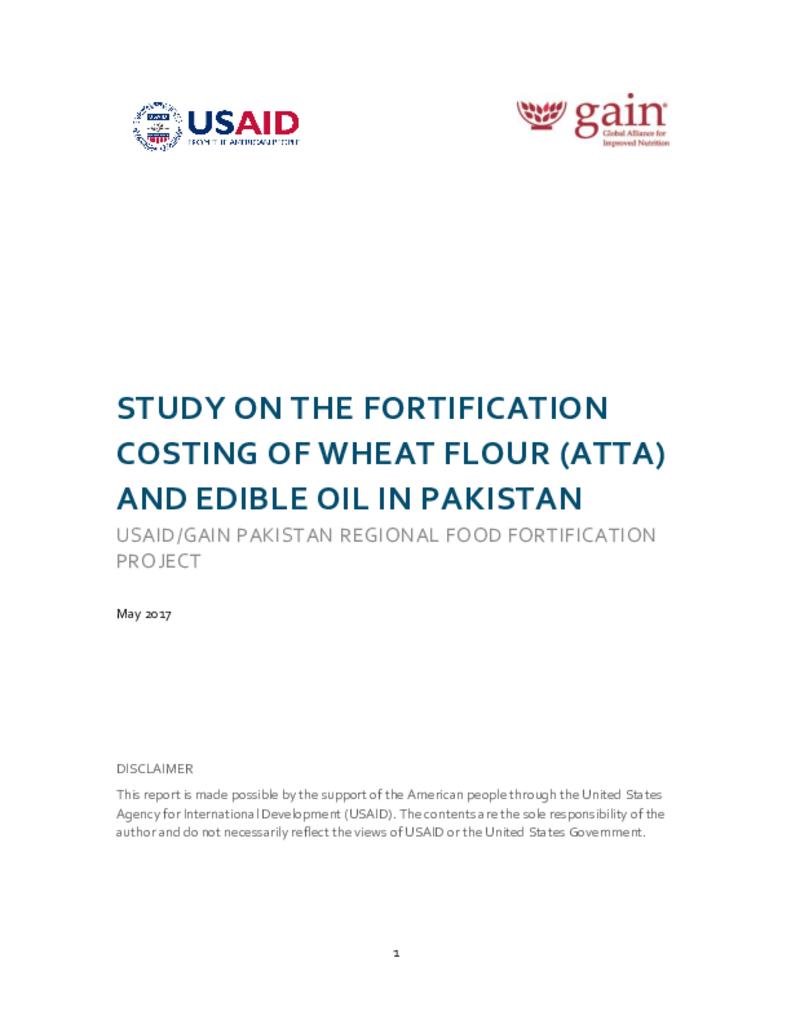Stunting, wasting and micronutrient malnutrition are endemic in Pakistan, caused by dietary deficiencies, poor maternal and child health and nutrition; high morbidity and low micronutrient content in the soil, especially iodine and zinc. USAID has provided support, through GAIN, to work on food fortification in Pakistan to improve regional linkages and a focus on exports to Afghanistan.
This study report presents a costing model that was developed to calculate the total national cost as well as to estimate the probable increment in the retail price of fortifying wheat flour and edible oil produced by large flour mills and edible oil refineries with essential micronutrients, and to determine export price of these products. The model will inform discussion on this issue as well as provide a basis upon which future adjustments to prices can be made.
Additionally, the report provides answers to the following three questions:
- What are the fortification costs to be considered in relation to production, market availability and consumption of fortified wheat flour and edible oils in Pakistani markets, as well as for export to Afghanistan?
- How do fortification costs affect market dynamics for wheat flour and edible oils in both countries?
- How do differences in country-level wheat flour fortification standards impact fortification costs?
